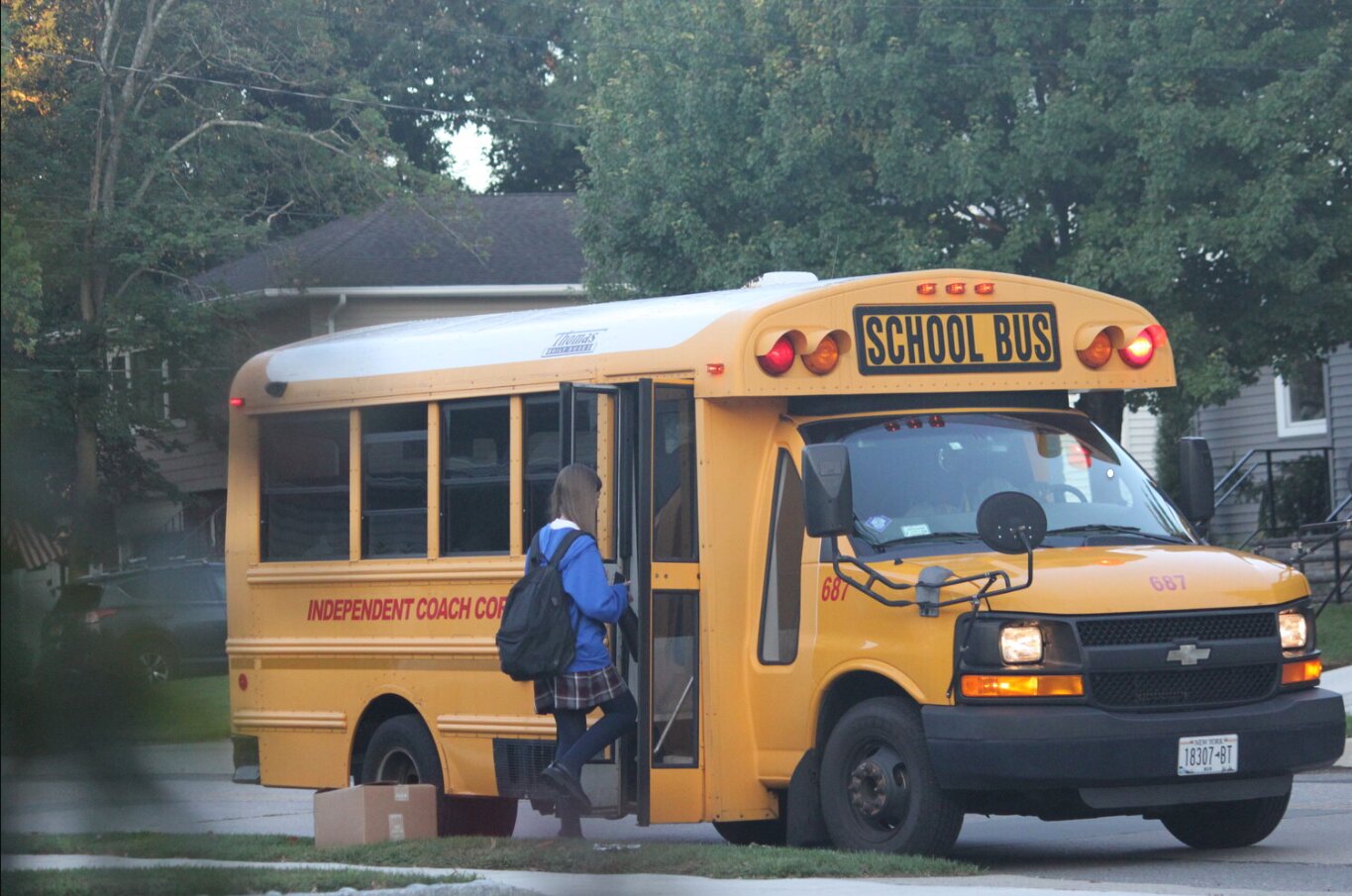Valley Stream District 13 mulls over owning bus fleet, explained.
The Valley Stream District 13 Board of Education voted unanimously in a meeting last month for the district to consider weaning itself away from outsourcing its school transportation to private bus service companies and toward buying its own bus fleet.
Trustee Anthony Bonelli offers a proposal, he argues, could save the district millions in transportation costs.
The idea of a school district-owned bus fleet is neither new nor unheard of, but Bonelli says that against the backdrop of soaring transportation costs, buying a bus fleet now will mean savings for years to come.
In recent months, conversations around the future cost of school transportation have indeed taken on a new urgency. Following Governor Hochul’s latest mandate that all school buses purchased by 2027 must emit zero emissions — and that each district’s entire school fleet must go electric by 2035 — school districts are hand-wringing over how to make the switch.
Bonelli says that, by his estimates, his proposal to transition to an in-house bus fleet could pave the way for the district to save 10 million dollars in the next few years. Savings that could then help defray the expected expenses associated with shifting from gas-powered to electric in the next decade.
Traditional transportation costs are too high
Since the pandemic, from 2019 to 2023, transportation costs have undeniably swelled, rising from roughly 1.9 million to 4.2 million dollars.
District 13 Superintendent Judith LaRocca has argued factors largely outside the district’s control are to blame for the cost spike including “transportation companies that have gone out of business, higher costs for drivers due to minimum wage increases, and an increase in gas prices.”
The district currently contracts with no less than 9 different bus companies. Anticipated transportation costs are expected to clock in around 4 million dollars this upcoming budget season, argues Bonelli.
Anticipating that transportation costs will not only stay at their current cost rate but grow by 3 percent each year, for the next four years, to account for inflation, Bonelli figures that by 2029, the district will pay $4.6 million for transportation.
If this financial forecast holds, Bonelli argues that buying a fleet of 38 gas-powered, short buses makes savvy financial sense. The price tag of each bus is roughly $97,000 — using the market price offered by Bird Bus Sale, a regional bus dealer. That makes the total purchase for the bus fleet roughly $3.7 million.
The total upfront cost of the bus fleet in the first year, plus anticipated expenses on maintenance, parking, insurance, and labor, would be about $5.5 million, argued Bonelli. It may look like a scary number, he admitted, but things become less scary once you consider the savings generated in the long run.
After the first year, transportation costs drop to around $1.5 million annually to run and maintain the fleet. Compare this with roughly $4.2 million for the ongoing cost of contracting out in the same year.
“After the first year, I estimate the district saves more than $2.7 million annually. In less than three years, the purchase cost of the bus fleet would be recovered. Within five years, the district would save more than $10 million,” noted Bonelli. “It’s short-term pain for long-term gain.”
Bonelli’s calculated financial predictions seem solid but board members and administrative leaders must mull over whether any bus-owning proposal will live up to its promise as a more efficient, cost-saving alternative.
Superintendent treads cautiously
Superintendent Judith LaRocca would not take a direct stance on Bonelli’s proposal at this time.
“We are currently in the process of gathering facts and information regarding the district’s potential transition to purchasing its bus fleet as opposed to continuing with contracted services,” she said in a statement. “This decision requires thorough research to define the costs and benefits involved.”
Bonelli’s money-saving promise is built on the expectation that private contractors will continue to charge as much — and gradually more — for the district’s transportation needs in the coming years. It also expects the district can avoid any sharp increases in labor salaries, insurance, and maintenance that could inflate the price of ownership. Not to mention large, unexpected emergencies like an unforeseen uptick in eligible bus riders.
If a bus does go down, noted Bonelli, a spare bus added on to the required 37 buses to transport the district’s eligible riders could be put to work in case of emergencies or for larger-than-anticipated ridership levels.
Fielding criticism about bus storage during the day, Bonelli said the issue was a ‘red herring.’ Buses sit idly off school grounds during school hours and would only ever take up space in the school’s parking lot during the early morning or late evening and night hours — in keeping with the times in which most staff and students have either left the school or have yet to arrive.
Nevertheless, there are contingency versions of his plan, Bonelli assured, that include the expansion of parking lots at Dever and Willow to house the buses during school hours, if requested.
But perhaps the biggest question is if the district decides to purchase gas-powered buses, what are the costs involved with eventually replacing them with electric vehicles by 2035? But LaRocca, again, urged restraint.
“It is important to note that the district does not currently own any buses, and therefore, we are not under any immediate obligation regarding Governor Hochul’s mandate,” she said. “We will update the community once we have gathered initial facts and have substantive information to share regarding this issue.”
Have an opinion on this article? Send an email to jlasso@liherald.com.

 43.0°,
Partly Cloudy
43.0°,
Partly Cloudy 




